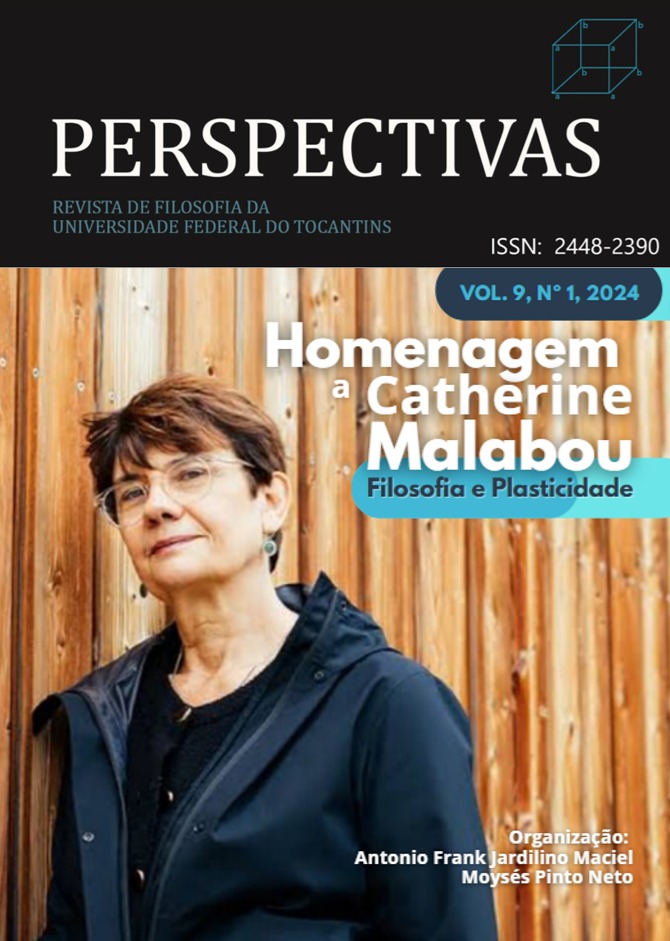Antagonisms of the Hippocratic imperatives?
DOI:
https://doi.org/10.20873-rpvn9v1-15Keywords:
Covid nineteen, Citizen masses, Doctor, Politics, HealthAbstract
The aim of this paper, which examines the issue of what is at stake in health for existence, is to reveal how the medical profession's medical obligation, constrained by the hegemony of the political state's medical policy, generates reasonable national-universal state-hyppocratic medical progress. The aim is, from its start, to analyze the singular characteristics of the two universes, in order to highlight the implications of their innate contradictory logics. It then goes on to underline that the only way to legitimize and dignify the hyppocratic perception of health is through the constant instruction of state responsibility. It concludes by highlighting the paradoxical fruitfulness of the medical-political antagonism. It follows that failure to observe their respective biological essences always carries with it the possibility of generating tensions, threats and hostilities, involving calls to order and reprisals, whether prejudicial or assumed. Any sovereign state will always be the source of legitimacy for the Hippocratic oath, which in its historical form has no binding universal legal value. Any doctor can only be bound by particular state codes that are constantly being adapted. Thus, ordinary and Hippocratic medical boundaries cannot be un-sanctuarised for politics, in relation to the primacy of the hegemony of state responsibility.
References
ALEXANDRE, L. La mort de la mort. Comment la technomédecine va bouleverser l’humanité. Paris: JC Lattès, 2011.
ARISTOTE. La politique. Traduction J. Tricot. Paris: Vrin, 1962.
ARISTOTE. Ethique De Nicomaque. Traduction, préface et notes, J. Voilquin. Paris: Garnier et Frères, 1965.
BERNARD, C. Introduction à l’étude de la méthode expérimentale. Paris: Gibert, 1943.
CANIVEZ, P. La politique et sa logique dans l’œuvre d’Éric Weil. Paris: Kimé, 1993.
CICÉRON. De la République. Des Lois. Paris: Flammarion, 1965.
DESCARTES, R. Discours de la méthode. Paris: Librairie Générale Française, 1973.
EPICTÈTE. Entretiens. Paris: Gallimard, 1964.
FREUND J. Qu’est-ce que la Politique ? Paris: Sirey, 1965.
GALLERAND, A. Qu’est-ce que le transhumanisme ? Paris: Vrin, 2021.
HEGEL, F. G. W. Principes de la philosophie du Droit. Présenté, traduit et annoté, par R. Derathe. Paris: Flammarion, 1932.
HEGEL, F. G. W. La Phénoménologie de l’esprit, Tome II. Traduction et notes de J. Hyppolyte. Paris: Aubier-Montaigne, 1941.
HEGEL, F. G. W. Précis de l’encyclopédie des sciences philosophiques. 3ème édition. Paris: Vrin, 1952.
HOBBES, T. Le Léviathan. Paris: Sirey, 1971.
HOBBES, T. Le citoyen ou les fondements de la politique. Traduction de S. Sorbière. Paris: Garnier Flammarion, 1982.
JONAS, H. Le Principe Responsabilité. Une éthique pour la civilisation technologie. Paris: Flammarion, 1990.
MORIN, E. La voie. Pour l’avenir de l’humanité. Paris: Fayard, 2011.
NIETZSCHE, F. La généalogie de la morale. Paris: Gallimard, 1964.
PÉRONNE, C. Décidément, Ils n’ont toujours rien compris ! Paris: Albin Michel, 2021.
PÉRONNE, C. Y a-t-il une erreur qu’ils n’ont pas commise ? Covide-19 : l’union sacrée de l’incompétence et de l’arrogance. Paris: Albin Michel, 2020.
PLATON, Apologie de Socrate, Phédon. Traduction, notices et notes, par E. Chambry. Paris: Flammarion, 1965.
PLATON, La République. Introduction, traduction et notes, par R. Baccou. Paris: Flammarion, 1966.
ROSNAY, J. L’Aventure du vivant. Paris: Seuil, 1988.
ROUSSEAU, J.-J. Lettres écrites de la Montagne. In: Œuvres, Tome III. Paris: Galimard, 1967.
ROUSSEAU, J.-J. Du contrat social. Introduction P. Burgelin. Paris: Flammarion, 1992.
RUSS, J. Histoire de la philosophie. Paris: Hatier, 1998.
SANSONETTI, P. Tempête parfaite. Chronique d’une pandémie annoncée. Paris: Seuil, 2020.
SAVADOGO, M. « L’interdisciplinarité par différentes familles de sciences ». In : Actes du Colloque sur la covide-19. Réagir à la pandémie de Covid-19. Contributions croisées de trois réseaux d’enseignants chercheurs : mathématiques, sciences humaines et sociales et sciences biologiques et médicales, Tome I. Ouagadougou: Presses Universitaires, 2021, p. 1-13.
SAVADOGO, M. Philosophie de l’action collective. Paris: Harmattan. 2013.
SIMPORÉ, J.; SAWADOGO, J. « Problématique éthique et enjeux bioéthiques de la Covid-19 : prévention, prise en charge médicale et recherche scientifique ». In: Actes du Colloque sur la covide-19. Réagir à la pandémie de Covid-19. Contributions croisées de trois réseaux d’enseignants chercheurs : mathématiques, sciences humaines et sociales et sciences biologiques et médicales, Tome II. Ouagadougou: Presses Universitaires, 2021, p. 105-121.
WEBER, M. Le Savant et le Politique. Paris: 10/18, 1966.
WEIL, E. Philosophie morale. Paris: Vrin, 1961.
WEIL, E. Philosophie politique. Paris: Vrin, 1966.
WEIL, E. Logique de la philosophie. Paris: Vrin, 1985.
WEIL, E. Essais sur la Philosophie, la Démocratie et l’Education. Lille: Presses Universitaires de Lille, 1933.
Downloads
Published
Versions
- 2024-09-20 (2)
- 2024-07-18 (1)
How to Cite
Issue
Section
License
Copyright (c) 2024 Souleymane Sawadogo

This work is licensed under a Creative Commons Attribution 4.0 International License.
The Magazine is under the Creative Commons Attribution 4.0 International Public License (CC BY 4.0), according to which:
1) The authors retain the copyright and grant the journal the right of first publication, with the work simultaneously licensed under the Creative Commons Attribution which allows the sharing of articles published with the recognition of authorship and initial publication in this journal.
2) Authors are authorized to enter into additional contracts separately for distribution of the version of the work published in this journal, as long as there is recognition of authorship and initial publication in Perspectivas.
3) Authors are authorized and encouraged to disseminate published texts with proper references to the journal and its authors.





















